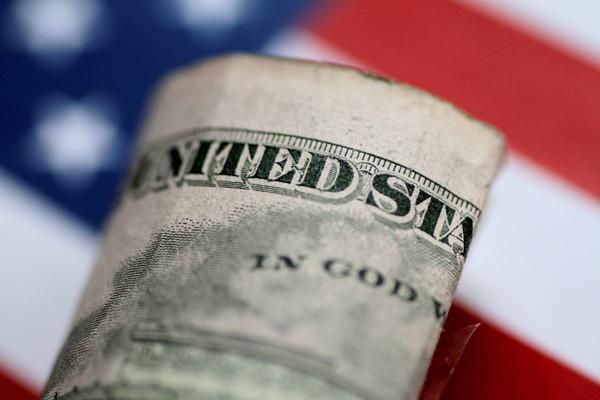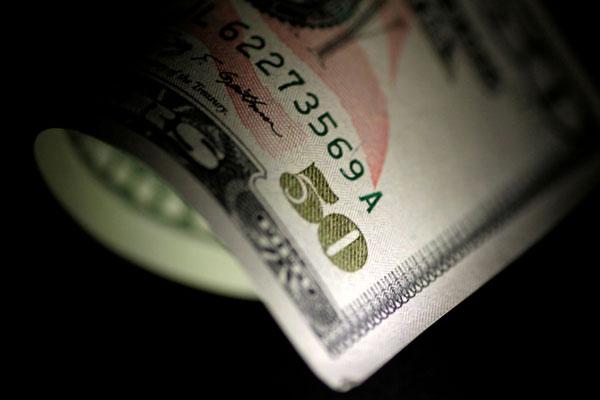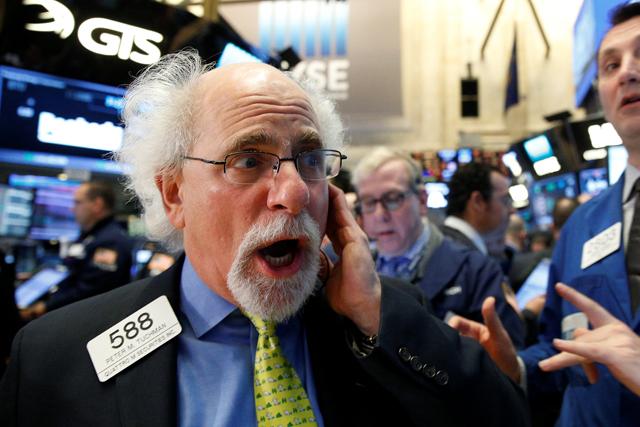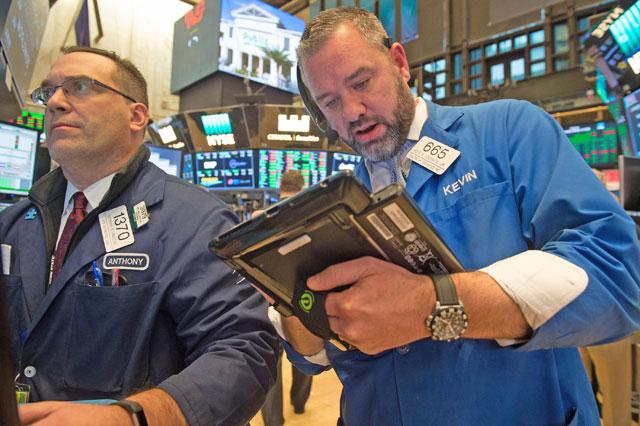You are here
Shares go weak as data disappoints, dollar extends power surge
By Reuters - Feb 07,2019 - Last updated at Feb 07,2019

A US five dollar note is seen in this illustration photo on June 1, 2017 (Reuters file photo)
LONDON — Mounting global growth worries thrust share markets into reverse on Thursday, while the dollar scored its longest winning run since a hot streak in early October that helped trigger a wave of worldwide “bear” markets.
Wall Street looked set to suffer back-to-back losses later after Europe had set the tone.
Some poor earnings and weak data out of Germany ensured most of the main bourses were lower and kept MSCI's main index of world stocks in the red for a second day, too.
The extent of the current slowdown in the global economy was highlighted, as India unexpectedly cut its interest rates and the euro got hit to $1.1346 by Germany's fourth consecutive drop in industrial output.
That only compounded the 1.3 per cent the euro has lost over the last week and the tailwind behind the dollar, which has risen every day since Friday's strong US jobs data. It has also recovered almost all the losses suffered after the Federal Reserve all but abandoned plans for more rate hikes last month.
"Another day, another piece of terrible German data. EUR/USD risks a move to $1.1300," said ING's chief EMEA FX and interest rate strategist, Petr Krpata.
Elsewhere the pound was struggling near $1.29 again after the Bank of England kept rates on hold, while gloomy jobs data saw New Zealand's dollar suffer a similar flop as its Australian counterpart had seen the previous day.
The kiwi slid to $0.6744, losing nearly 2 per cent in the past 24 hours, as investors wagered on the risk of a cut in interest rates there. New Zealand's central bank holds its first meeting of the year next week.
Asian trading was still light overall though with China on holiday and no major economic data on the diary.
MSCI's broadest index of Asia-Pacific shares outside Japan added 0.1 per cent as it rose to its highest since early October.
The index has risen steadily since early January as the US Federal Reserve changed its tune and emerging markets have surged more broadly after a torrid 2018.
Australia's benchmark stock index jumped 1.2 per cent amid expectations of easy monetary policy after the central bank chief shifted away from his previous tightening bias.
Japan's Nikkei slipped 0.6 per cent though and the caution quickly spread to Europe.
London's FTSE was the only major bourse clinging to positive territory, helped by a weak pound, whereas the rest were down at least 0.6 per cent as were E-Mini futures for the S&P 500 and Dow.
We are all doves now
One of the day's big surprises came from India where its central bank unexpectedly lowered interest rates to 6.25 per cent to boost a slowing economy after a sharp slide in the inflation rate.
Italian bonds were back under pressure with the European Commission slashing its 2019 growth forecast.
Italy agreed a deficit target of 2.04 per cent in December, averting a major fall-out with the EU, though this was based on a growth assumption of 1 per cent. Slowing growth in Italy could make it harder for the country to remain within EU rules.
However, Benjamin Schroeder, rates strategist at ING, said he did not expect the EU to demand more fiscal tightening from Italy, should its forecasts be reduced.
"The EU has another thing to deal with — Brexit — and the other thing is do you want to infuse the campaign ahead of the parliamentary elections with this topic."
The next major trigger for markets will more likely be any breakthrough in the US-Sino tariff talks when the two sides meet in Beijing next week.
US President Donald Trump offered little new to chew on in his State of the Union speech but Treasury Secretary Steven Mnuchin said on Wednesday he and other US officials will aim to clinch a deal next week to avert a March 2 increase in US tariffs on Chinese goods.
Probably more pressing though for the US markets is the threat of another government shutdown, Nick Twidale, an analyst at Rakuten Securities Australia said.
"With both sides of the house standing firm on the contentious border wall issue at present, and the deadline approaching swiftly on February 15, we could be back where we were just a few weeks ago."
The broad dollar gains put pressure on gold, which eased to $1,303.96 per ounce, slipping further from last week's top of $1,326.30.
Oil prices eased too after US crude inventories rose and as production levels in the country held at record levels.
Brent crude futures slipped 23 cents to $62.46. U.S. crude eased 19 cents to $53.82 a barrel.
Related Articles
NEW YORK, Jan 26 — Strong earnings from Intel and other companies drove Wall Street indexes to record closing highs on Friday, while the US
LONDON — European shares edged lower on Tuesday, after falls on Asian bourses, and low-risk government debt yields fell as political risks f
NEW YORK — The US dollar fell to a more than three-year low against the euro on Friday, extending recent losses on expectations European Cen


















